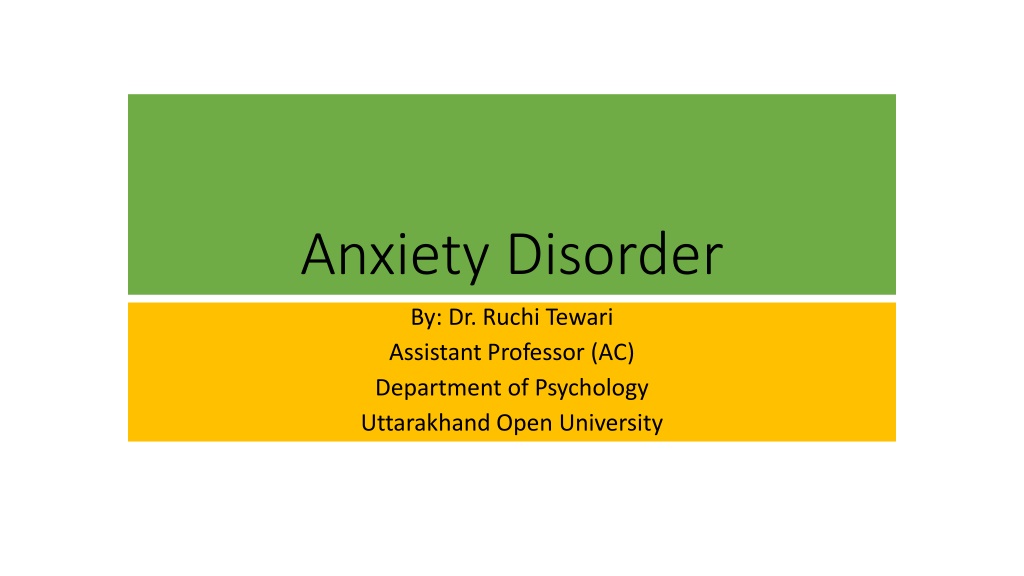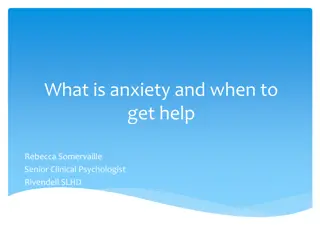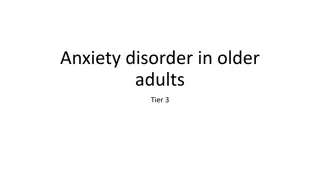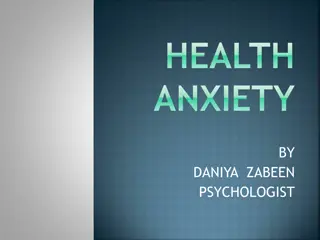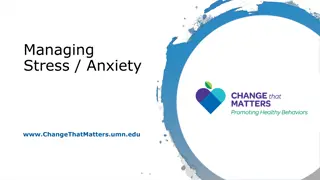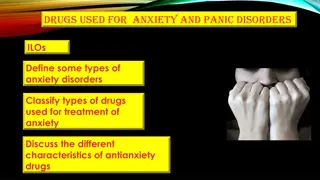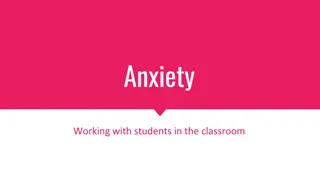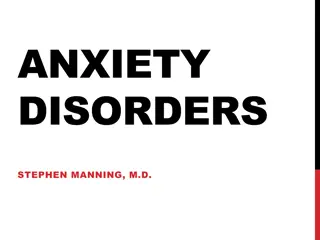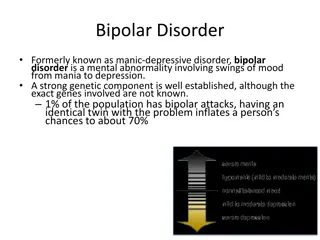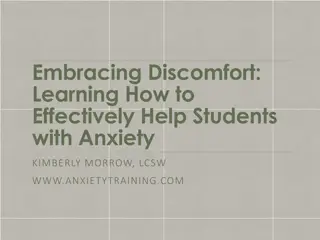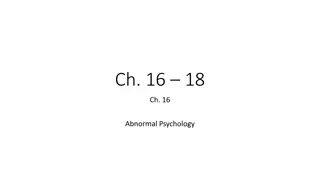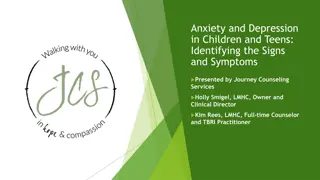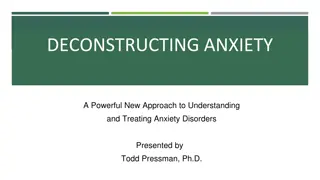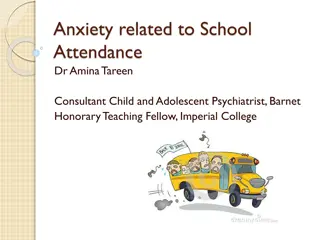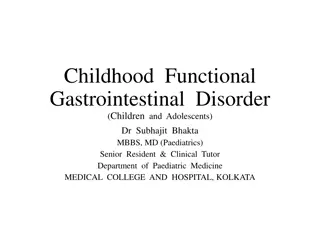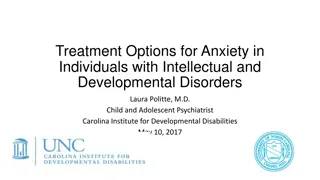Understanding Anxiety Disorders: Causes, Symptoms, and Types
Anxiety disorders are a group of mental illnesses characterized by excessive and overwhelming anxiety and fear. This article explains the normal emotion of anxiety, symptoms of anxiety disorders, types of anxiety disorders, and common causes like genetics, brain chemistry, environmental stress, and drug misuse.
Download Presentation

Please find below an Image/Link to download the presentation.
The content on the website is provided AS IS for your information and personal use only. It may not be sold, licensed, or shared on other websites without obtaining consent from the author. Download presentation by click this link. If you encounter any issues during the download, it is possible that the publisher has removed the file from their server.
E N D
Presentation Transcript
Anxiety Disorder By: Dr. Ruchi Tewari Assistant Professor (AC) Department of Psychology Uttarakhand Open University
Anxiety is a normal emotion. It s your brain s way of reacting to stress and alerting us of potential danger ahead. Everyone feels anxious now and then. For example, you may worry when faced with a problem at work, before taking a test, or before making an important decision. Occasional anxiety is OK. But anxiety disorders are different. They re a group of mental illnesses that cause constant and overwhelming anxiety and fear. The excessive anxiety can make you avoid work, school, family get- togethers, and other social situations that might trigger or worsen your symptoms. With treatment, many people with anxiety disorders can manage their feelings.
Symptoms Of Anxiety Disorder : The main symptom of anxiety disorders is excessive fear or worry and common symptoms of anxiety are: Panic, fear, and uneasiness Feelings of panic, doom, or danger Sleep problems Not being able to stay calm and still Cold, sweaty, numb, or tingling hands or feet Shortness of breath Breathing faster and more quickly than normal (hyperventilation) Heart palpitations Dry mouth Nausea Tense muscles Dizziness Thinking about a problem over and over again and unable to stop (rumination) Inability to concentrate Intensely or obsessively avoiding feared objects or places
Types of Anxiety Disorders : 12 other disorders are included under Anxiety Disorders according to DSM 5, section II, Diagnostic Criteria and Codes. These are: Separation Anxiety Disorder Selective Mutism Specific Phobia Social Anxiety Disorder or Social Phobia (SAD) Panic Disorder Panic Attack Agoraphobia Generalized Anxiety Disorder Substance/Medication-Induced Anxiety Disorder Anxiety Disorder Due to Another Medical Condition Other Specific Anxiety Disorder Unspecified Anxiety Disorder Your specific symptoms depend on the type of anxiety disorder you have.
Anxiety Disorder Causes : Some causes of anxiety disorders are: Genetics. Anxiety disorders can run in families. Brain chemistry. Some research suggests anxiety disorders may be linked to faulty circuits in the brain that control fear and emotions. Environmental stress. This refers to stressful events you have seen or lived through. Life events often linked to anxiety disorders include childhood abuse and neglect, a death of a loved one, or being attacked or seeing violence. Drug withdrawal or misuse. Certain drugs may be used to hide or decrease certain anxiety symptoms. Anxiety disorder often goes hand in hand with alcohol and substance use. Medical conditions. Some heart, lung, and thyroid conditions can cause symptoms similar to anxiety disorders or make anxiety symptoms worse. It s important to get a full physical exam to rule out other medical conditions when talking to your doctor about anxiety.
Risk Factor Risk factors for anxiety disorders include: History of mental health disorder. Having another mental health disorder, like depression, raises your risk for anxiety disorder. Childhood sexual abuse. Emotional, physical, and sexual abuse or neglect during childhood is linked to anxiety disorders later in life. Trauma. Living through a traumatic event increases the risk of posttraumatic stress disorder (PTSD), which can cause panic attacks. Negative life events. Stressful or negative life events, like losing a parent in early childhood, increase your risk for anxiety disorder. Severe illness or chronic health condition. Constant worry about your health or the health of a loved one, or caring for someone who is sick, can cause you to feel overwhelmed and anxious. Substance abuse. The use of alcohol and illegal drugs makes you more likely to get an anxiety disorder. Some people also use these substances to hide or ease anxiety symptoms. Being shy as a child. Shyness and withdrawal from unfamiliar people and places during childhood is linked to social anxiety in teens and adults. Low self-esteem. Negative perceptions about yourself may lead to social anxiety disorder.
Treatment -: Medication -: Anti Anxiety Drugs Antidepressants Psychotherapy -: Cognitive Behavior Therapy Exposure Therapy
